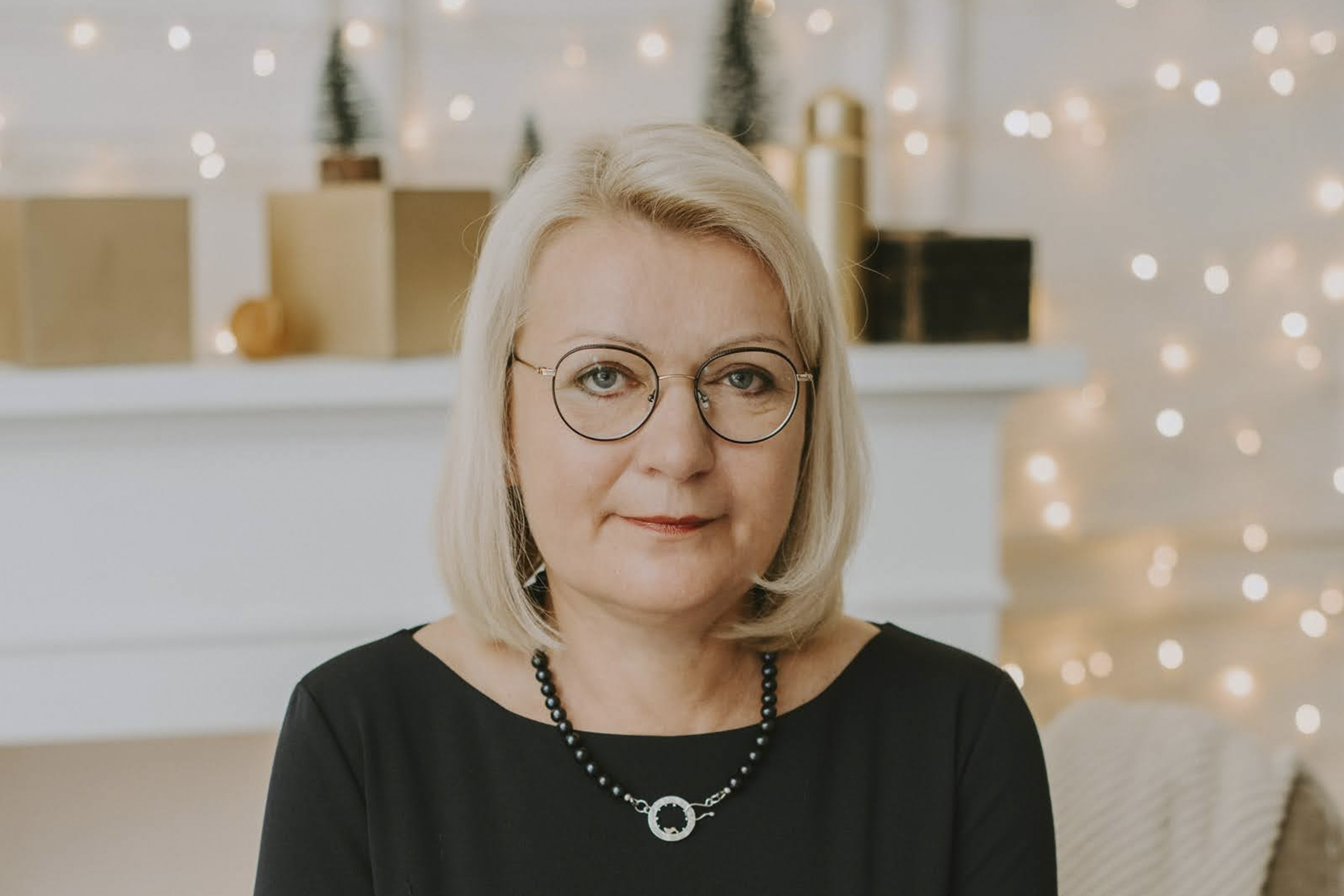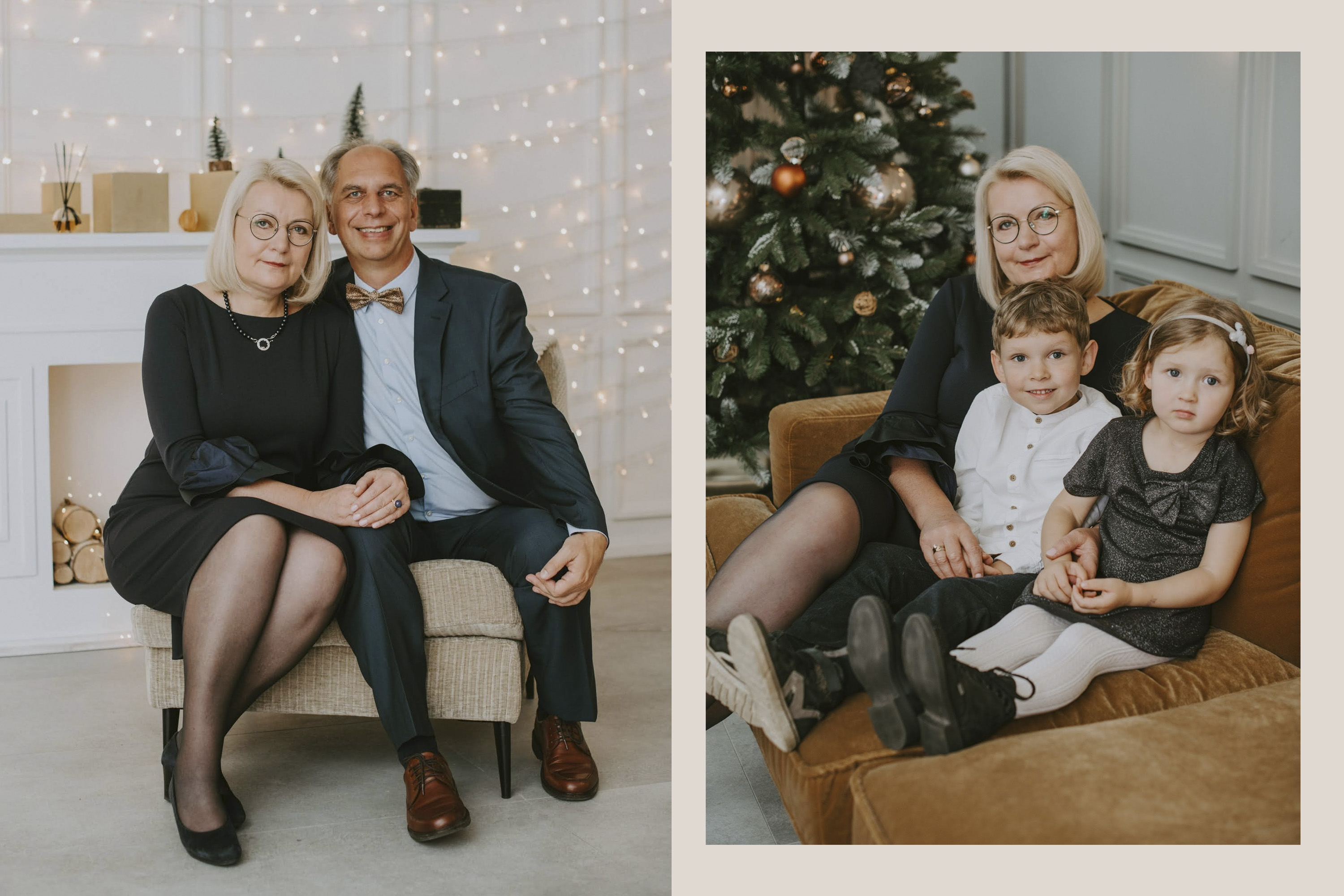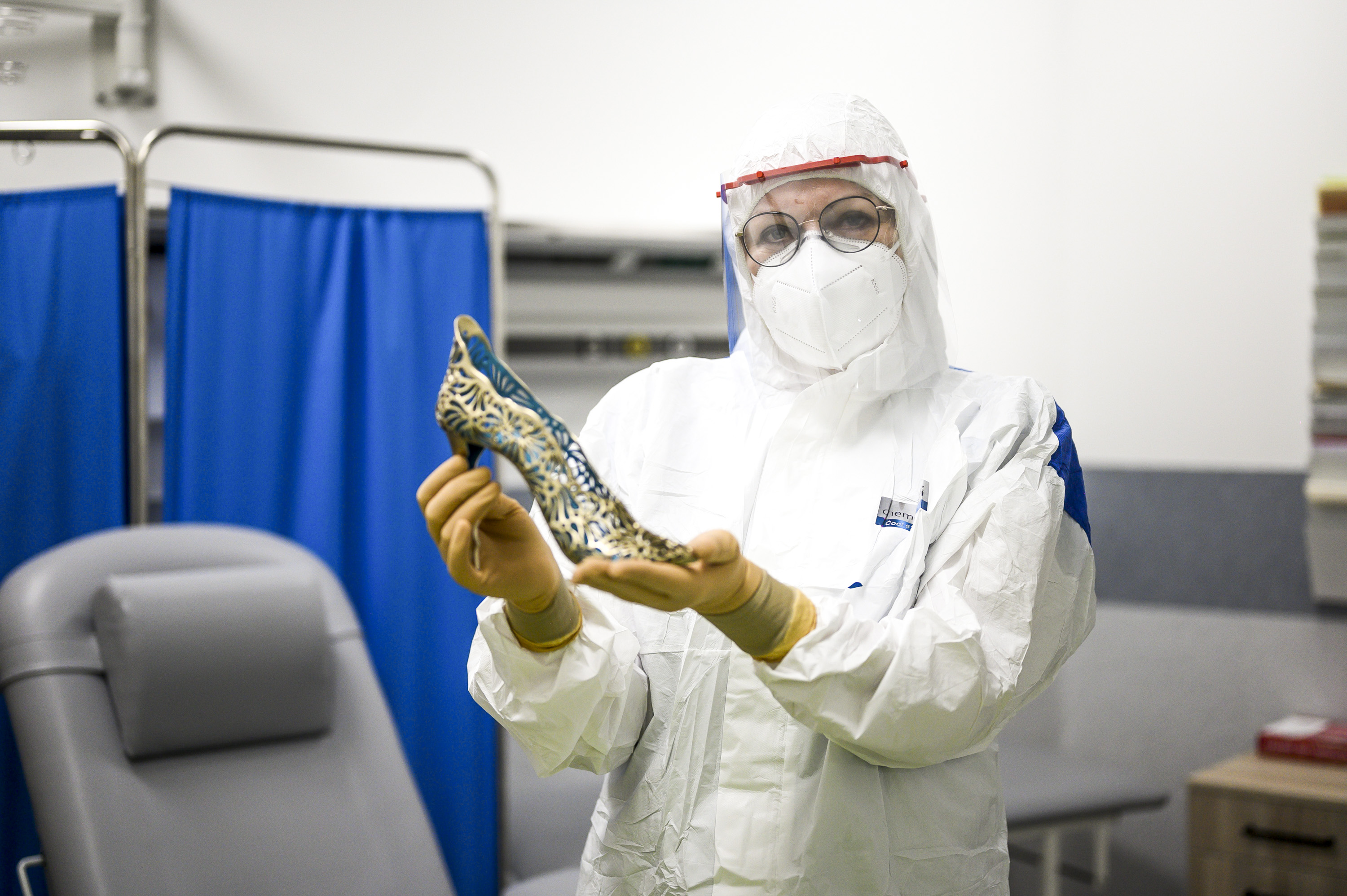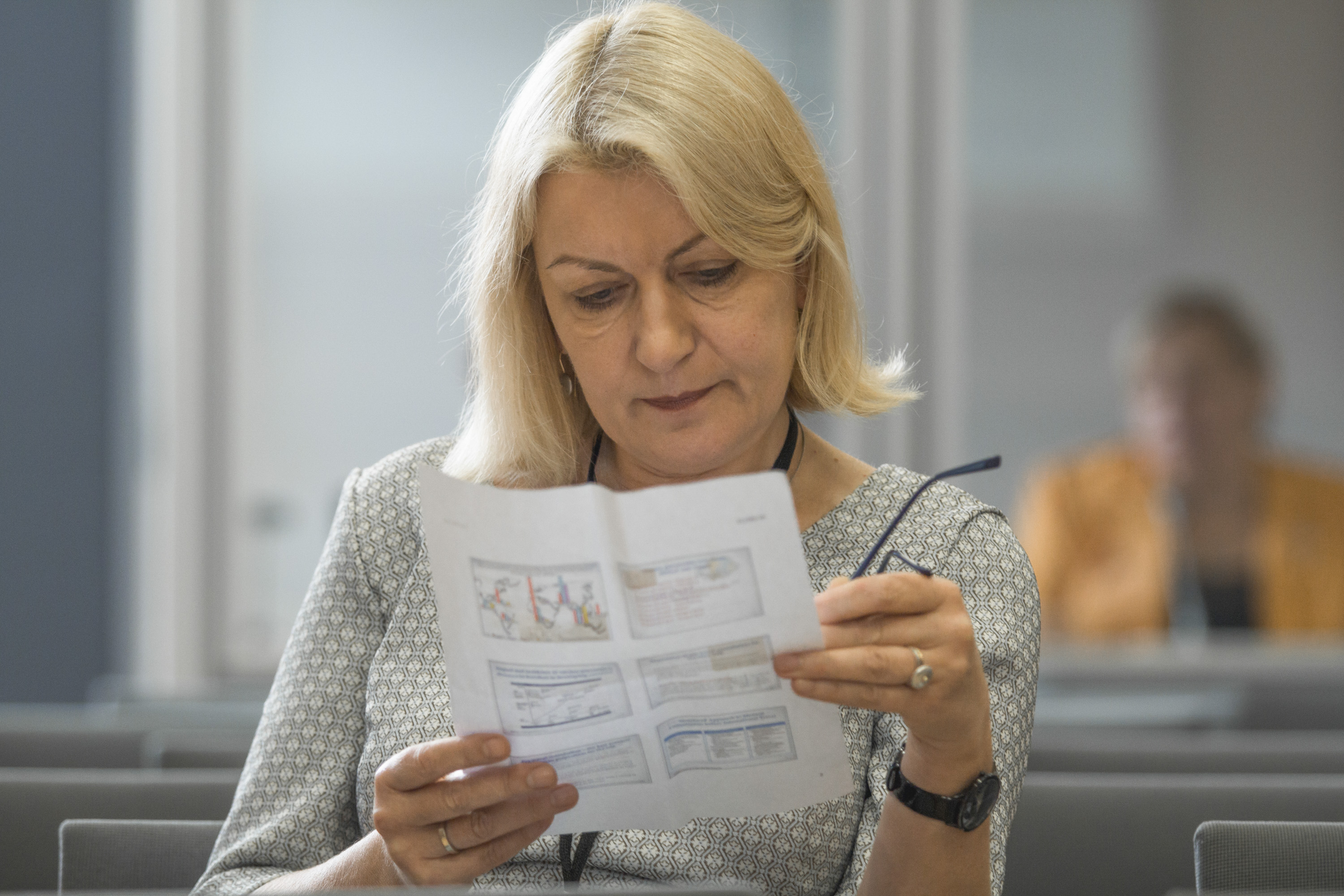
Prof. Ligita Jančorienė of the Faculty of Medicine at Vilnius University, infectious diseases specialist, and Head of the Centre for Infectious Diseases at the University Hospital Santaros Klinikos, believes one should, “Do your job well or don’t do it at all.” The professor, who does not consider the time and effort required to fulfil her obligations, says that this is due to her strong sense of responsibility, nurtured by her parents at an early age, and her desire for self-fulfilment.
Interestingly, prior to the pandemic, the infectious disease specialty was not high profile and the work of those working in it, was underappreciated. So what made you, a graduate of medical residency studies in gastroenterology, choose this path?
I entered medical residency studies the first year that such studies were available in an independent Lithuania. There were seven of us. In 1993, I started working as a gastroenterologist, and later I became a licenced doctor of infectious diseases. This was a combination of circumstances. During my studies of gastroenterology I was interested in liver diseases, specifically viral hepatitis. At that time, I received an invitation from Prof. A. Ambrozaitis, Head of the Clinic for Infectious Diseases at Vilnius University, to work at the clinic and specifically in the Unit for Viral Hepatitis. I prepared and defended my doctoral dissertation on the treatment of chronic hepatitis C which was my area of interest.
While treating patients with viral hepatitis, I began to take an interest in the prevention of these diseases, later the area of my interest expanded to the specific immunoprophylaxis of infectious diseases. I started learning vaccinology, actively participated in vaccine research, and gradually gained the competences required by an infectious diseases specialist. Subsequently, when an immunoprophylaxis section was opened, we began vaccinating people. I started taking interest in travel medicine and joined the International Society of Travel Medicine (ISTM). In 2011, I passed an examination organised by the ISTM in Boston (USA) to obtain an ISTM Certificate in Travel Health.
The topic of viral hepatitis is very important to me and I continue to improve my knowledge in this area on a regular basis. I give lectures, and conduct seminars for doctors, residents, students and patients. I also supervise master’s and doctoral theses on this topic.
In one of your interviews you said, “I don’t find it easy. I must make every effort to live the way I live today.” Where do you get your strength, energy and motivation from? What drives you in your professional field?
To become a medical student was my vocation. There were many doctors in my family, so this profession was something familiar and understandable to me, and I have never regretted my choice. I was interested in learning, and enjoyed working with patients, and it provided the self-fulfilment that was so important to me. There were and still are some difficult days when I feel exhausted in the evening. But I have a good sleep and feel re-energized the next morning.
The great sense of duty and responsibility nurtured by my parents is also significant in me. Currently I am a doctor but also the head of the centre, so I feel an even greater responsibility for the treatment of patients and for my colleagues. I care that they should feel good at work and experience as little stress as possible. I try to be an advisor to them and an authority, but achievement is not something handed to you, rather it is something earned through hard work. I have always improved my qualifications, participated in training, internships. I became a student again and kept on learning, because I was interested in it. Even after becoming a professor at Vilnius University, I, like every doctor, would work some night shifts, as part of my workload. Do your job well or don’t do it at all.
When you finally resolve a patient’s difficult health issue and treat a persistent or severe acute disease, it is highly motivating. Diseases such as chronic hepatitis used to be very complicated and stressful for both the patient and the doctor. You had to be available to the patient at all times because it was difficult to endure the adverse side-effects of medicines and the treatment might continue for a year or more. There were also moments when a patient doubted whether they could withstand the treatment and wanted to quit.
The motivation and commitment was the same in the field of research. Although we worked in a hospital that was there for a century and externally did not look like a 21st century institution, we did everything our colleagues in Europe did. We worked in our internships and conducted international clinical trials with similar results or even better achievements than our European partners.

You have mentioned that on weekdays you usually have only 5 hours of sleep and therefore you plan your free time very carefully. Do you choose such a lifestyle, or are you forced into it because of your abundance of duties and responsibilities?
Work starts at the University Hospital Santaros Klinikos at 7 a.m. So that I can be at work at this time, I get up at 5 a.m. and take time before the start of my day, for preparation, reflection on the schedule for the day, checking my emails and writing replies. These days, in the evening, after the end of my working day, I feel too tired to prepare everything for my next working day. So, early morning has become the most productive time for me.
The early days of the COVID-19 pandemic was a new phenomenon for all of us. We had to put a lot of effort into understanding this disease and acquiring the skills needed for its treatment. Since the beginning of the pandemic in March 2020, together with colleagues from other specialties, we organised the discussion of patient cases twice daily – morning and evening – regardless of whether it was a working day, a weekend or a public holiday. As a result, I was working at weekends for a long period, as I needed time to prepare for these discussions.
Later, when the number of patients decreased and we gained knowledge and experience, we could solve many problems ourselves. So, the first half year of the pandemic was very intense and I slept very little during that time. This experience, however, allowed us to build a strong team, whose members can duly call themselves experts.
How did the COVID-19 pandemic change you personally? As head of the division, you had to take very complex decisions. The fact that just before the pandemic the Centre for Infectious Diseases had moved to new premises, must have caused additional challenges in the fight against the pandemic.
It is a miracle that we managed to move to new premises just before the unforeseen pandemic revealed itself. Relocation of a hospital division is not an easy process; it required a lot of effort and focus. Planning new workplaces and settling in was stressful. The pandemic was declared in the third month of our work in the new premises. We were not fully furnished, and a few of us just brought in our own desk or used other means necessary for us to function.
I don’t think that events change one’s character considerably. You remain the same. I have only noticed that my personal sense of responsibility under these mobilizing circumstances became stronger. It is the duty of the leader to be at the forefront, to seek solutions, negotiate, calm the situation down, and be convincing. You have to engage all your strongest skills.

Over the past couple of years you have been awarded the Woman of the Year in Lithuania and the Creator of the State of the Year by Lithuanian National Radio and Television for your tireless work in the epicentre of the pandemic. You also received the highly regarded St. Christopher Award. What do these awards mean to you?
I think there are other people who also deserved an award for managing the pandemic process. I am of course delighted with the awards; they are a huge recognition for me. The St. Christopher Award is particularly dear to me, as this is an award from the City of Vilnius where I was born, grew up, and studied and that I strongly feel a part of. I try to give my very best to my city. Meanwhile, the award from the Lithuanian National Radio and Television was a result of a public vote. I don’t know who nominated me, but I am happy to have such a support team. Perhaps what I did seemed meaningful to people.
So, I am grateful for the appreciation, but I think I should share these awards with many. There have always been great co-workers by my side, without whom I would not have achieved anything. This is the merit of the entire team, not of one person. I will always remain grateful to my colleagues who stood together, did not give up, did not get frightened, showed initiative and grew both as individuals and professionals under these difficult circumstances.
What challenges do you think infectious disease doctors could expect in the future?
I don’t think I can predict it. Science makes headway every day. Of course, infectious diseases doctors will possibly have to face new waves of infections in the future. When these challenges arise, we will try to control them.
During my career as an infectious diseases doctor, I have personally experienced two pandemics. The first occurred during 2009–2010, an influenza pandemic, and the second was the COVID-19 pandemic. In the past, there were more cases of pandemics in the world, most frequently in the form of influenza pandemics. In some geographical regions, the cholera pandemic is still ongoing. Many other threatening infections were stopped in the pre-pandemic stage, but the threat of pandemics in the future remains.
I believe that humans may inevitably face new infections, so the experience gained in managing the COVID-19 pandemic will undoubtedly be very useful.

